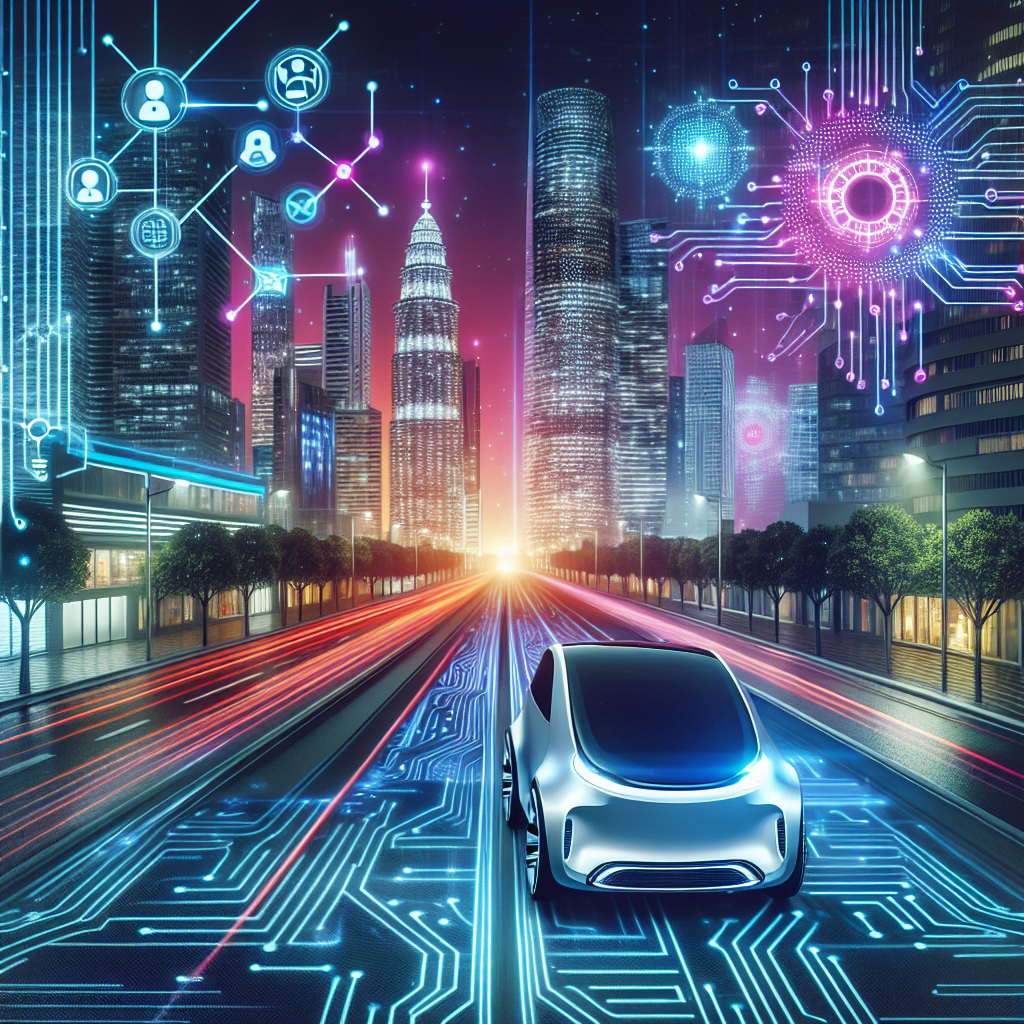The Future of AI Platforms in Autonomous Vehicles
Autonomous vehicles have been a hot topic in the automotive industry for the past few years. With advancements in artificial intelligence (AI) technology, self-driving cars are becoming a reality. AI platforms play a crucial role in making autonomous vehicles safe and efficient. In this article, we will explore the future of AI platforms in autonomous vehicles and how they will revolutionize the way we travel.
AI Platforms in Autonomous Vehicles
AI platforms are the brains behind autonomous vehicles. These platforms use machine learning algorithms to process data from sensors, cameras, and GPS to make real-time decisions while driving. The main components of AI platforms in autonomous vehicles include perception, decision-making, and control.
Perception: Perception is the ability of the AI platform to understand its surroundings through sensors and cameras. These sensors provide information about the vehicle’s environment, such as other cars, pedestrians, and road signs. The AI platform uses this data to make decisions about how to navigate safely through traffic.
Decision-making: Decision-making is the process of analyzing the data collected by the perception system and choosing the best course of action. The AI platform considers factors such as traffic conditions, road signs, and the behavior of other drivers to make decisions about speed, lane changes, and turns.
Control: Control is the execution of the decisions made by the AI platform. The control system of autonomous vehicles includes components such as steering, braking, and acceleration. The AI platform uses these components to navigate the vehicle safely through traffic and avoid accidents.
The Future of AI Platforms in Autonomous Vehicles
The future of AI platforms in autonomous vehicles looks promising. As technology continues to advance, AI platforms will become more sophisticated and efficient. Here are some key trends that we can expect to see in the future of AI platforms in autonomous vehicles:
1. Enhanced Perception: AI platforms will be able to perceive their surroundings with greater accuracy and detail. Advanced sensors and cameras will provide more data about the vehicle’s environment, allowing the AI platform to make better decisions while driving.
2. Improved Decision-making: AI platforms will become better at making decisions in complex driving situations. Machine learning algorithms will be able to analyze vast amounts of data in real-time to choose the best course of action. This will make autonomous vehicles safer and more efficient on the road.
3. Autonomous Driving in Challenging Conditions: AI platforms will be able to navigate autonomous vehicles in challenging conditions, such as bad weather, construction zones, and heavy traffic. Advanced algorithms will allow the AI platform to adapt to changing road conditions and make decisions in real-time to ensure safe driving.
4. Integration with Smart Infrastructure: AI platforms in autonomous vehicles will be able to communicate with smart infrastructure, such as traffic lights and road signs. This integration will allow autonomous vehicles to navigate more efficiently and avoid traffic congestion.
5. Personalized Driving Experience: AI platforms will be able to learn the driving preferences of individual users and tailor the driving experience to their needs. For example, the AI platform could adjust the seat position, temperature, and music preferences based on the user’s preferences.
FAQs
Q: How do AI platforms in autonomous vehicles ensure safety?
A: AI platforms in autonomous vehicles use advanced sensors, cameras, and machine learning algorithms to perceive their surroundings and make real-time decisions while driving. These systems are designed to prioritize safety and avoid accidents on the road.
Q: Can AI platforms in autonomous vehicles handle complex driving situations?
A: Yes, AI platforms in autonomous vehicles are becoming increasingly capable of handling complex driving situations, such as bad weather, construction zones, and heavy traffic. Machine learning algorithms allow the AI platform to analyze vast amounts of data in real-time and make decisions to navigate safely through challenging conditions.
Q: Will AI platforms in autonomous vehicles replace human drivers?
A: While AI platforms in autonomous vehicles are becoming more sophisticated, they are not yet capable of completely replacing human drivers. Human drivers are still needed to handle unpredictable situations and make complex decisions that AI platforms may struggle with. However, autonomous vehicles can assist human drivers and make driving safer and more efficient.
Q: How will AI platforms in autonomous vehicles impact the automotive industry?
A: AI platforms in autonomous vehicles will revolutionize the automotive industry by making driving safer, more efficient, and more convenient. Autonomous vehicles have the potential to reduce traffic congestion, accidents, and emissions on the road. They will also open up new opportunities for mobility services and transportation solutions.
In conclusion, the future of AI platforms in autonomous vehicles looks promising. As technology continues to advance, AI platforms will become more sophisticated and efficient, revolutionizing the way we travel. With enhanced perception, improved decision-making, and the ability to navigate in challenging conditions, autonomous vehicles will change the landscape of transportation. The integration of AI platforms with smart infrastructure and personalized driving experiences will further enhance the benefits of autonomous vehicles. As we move towards a future where self-driving cars are a common sight on the road, AI platforms will play a crucial role in shaping the future of transportation.

